Advertisement
Hidden Sacred Spaces
For Nearly 140 Years, A Seaside Mission Has Offered Ship Workers Small Comforts And Spiritual Support
Editor's Note: Before the pandemic shuttered many houses of worship in the U.S., WBUR, in partnership with Brandeis University and Walking Cinema, embarked on a project to explore non-traditional religious spaces throughout Greater Boston.
The audio-visual project, called "Hidden Sacred Spaces" and underwritten by the National Endowment for the Humanities, takes listeners and viewers inside these little-known places of worship to reveal their significance and histories. As the coronavirus crisis rages on and these tucked away spaces remain closed to the public, this series features three radio stories and 3D augmented-reality experiences that offer new and otherwise impossible ways for the public to interact with these spaces.
This is part one of a three-part series. Part two will publish on Thursday, Sept. 10.
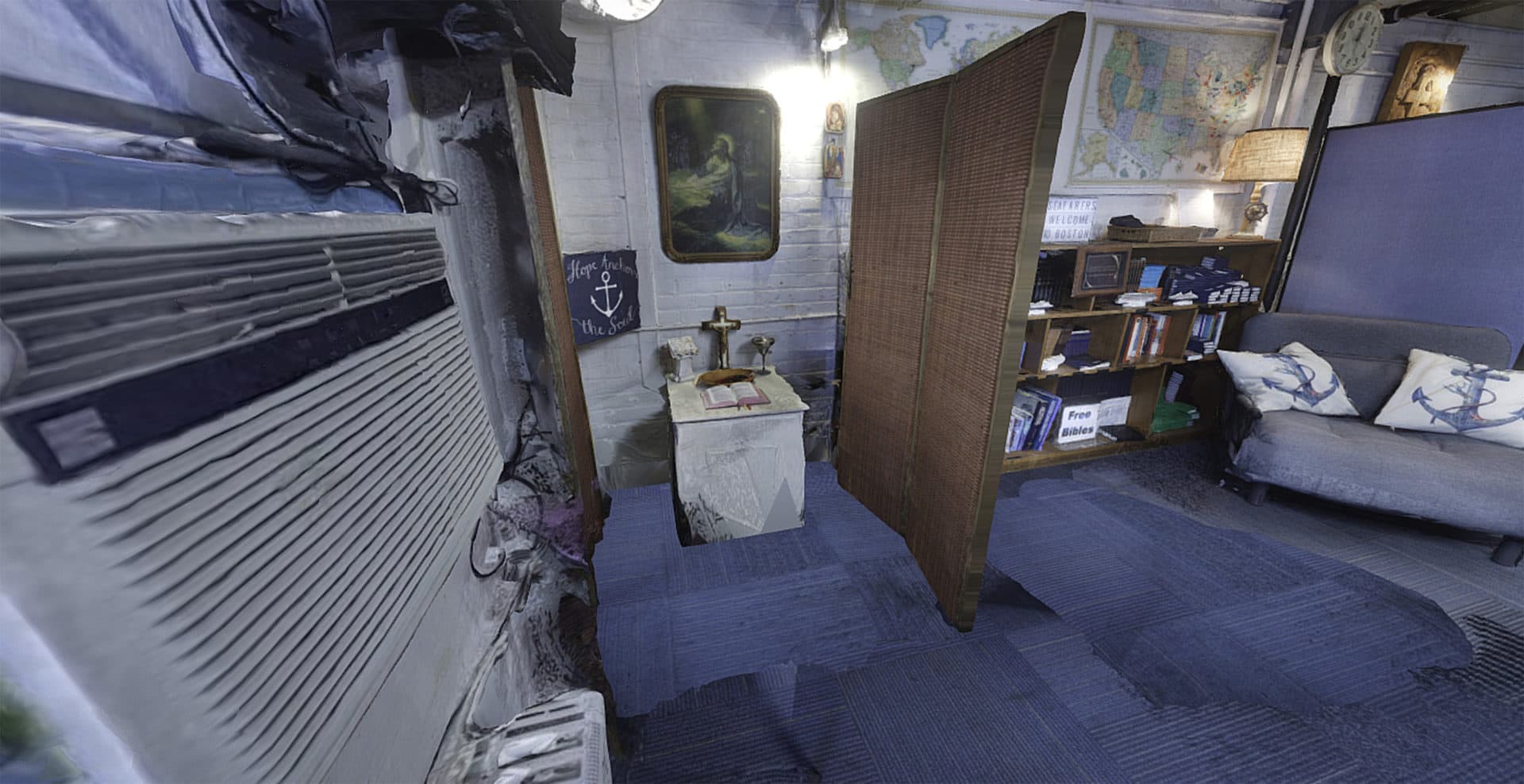
Click here or on the image above to access Walking Cinema's 3D augmented-reality model of the Seafarers Mission. For the best experience, view on Androids or desktops.
On a hot July morning last summer, the Rev. Steve Cushing rummages through the cluttered shelves in a tiny convenience store that sits on a pier jutting out into Boston Harbor.
The 62-year-old is readying his shop, operated by the New England Seafarers Mission, for an oncoming rush of cruise ship workers.
"We’ve got clean, brand new underwear and socks for them to use because they’re on a ship for nine months at a time," he says, moving between the narrow aisles. "So at some point in there, you’re gonna need to replace some things. We’ve got vitamins, we’ve got antacids, we’ve got soaps."
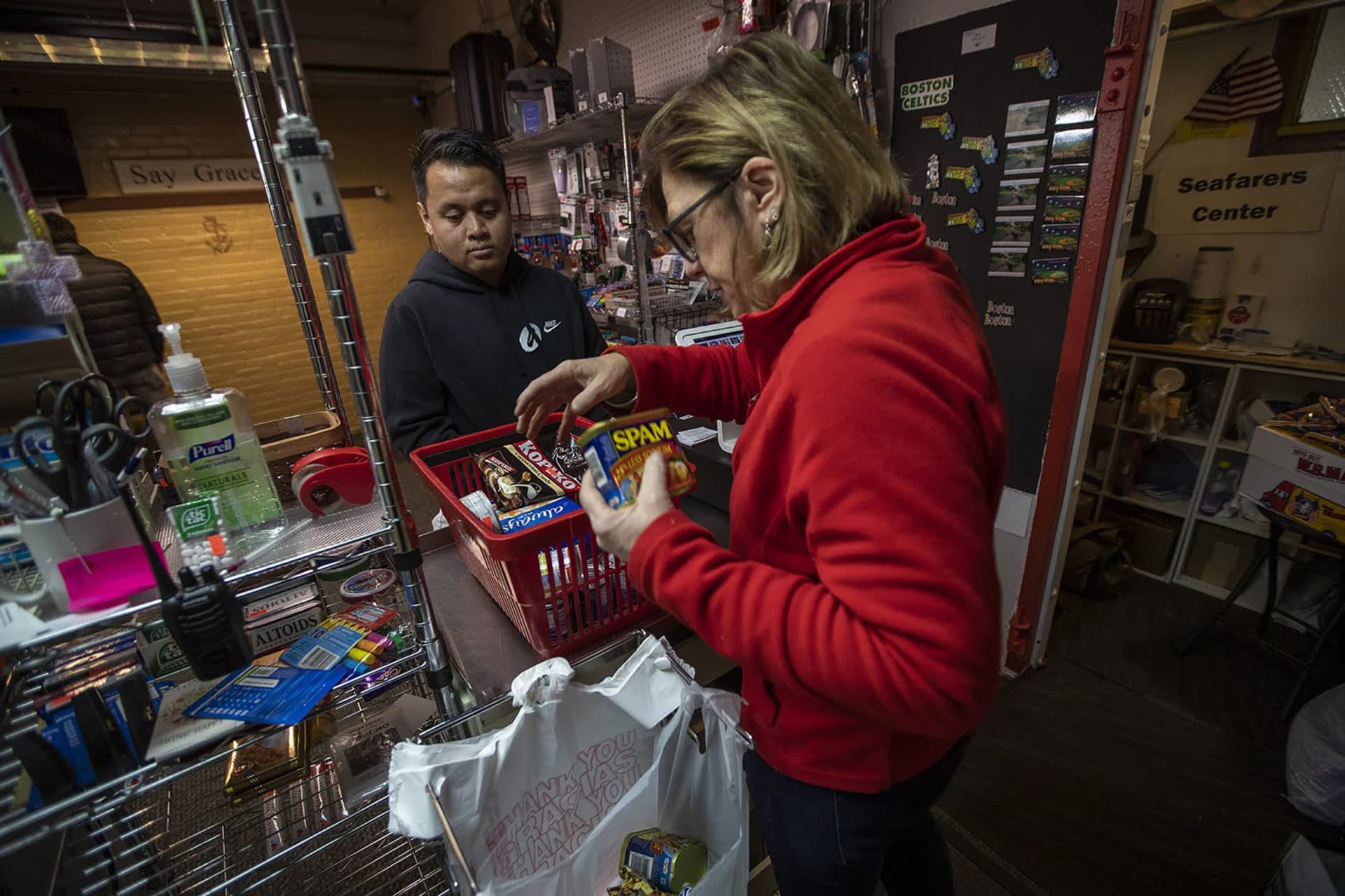
Cushing, a chaplain in the Evangelical Covenant Church, runs the place like a one-stop shop for ship workers. His stock brims with items from all over the world.
"This is a favorite, 'Savor,'" Cushing says, holding a bottle of brown cooking sauce from the Philippines. "It's a seasoning sauce. The food on the ship is relatively neutral — culture neutral — so a lot of these condiments go a way to kind of bring a little bit of home back into it."
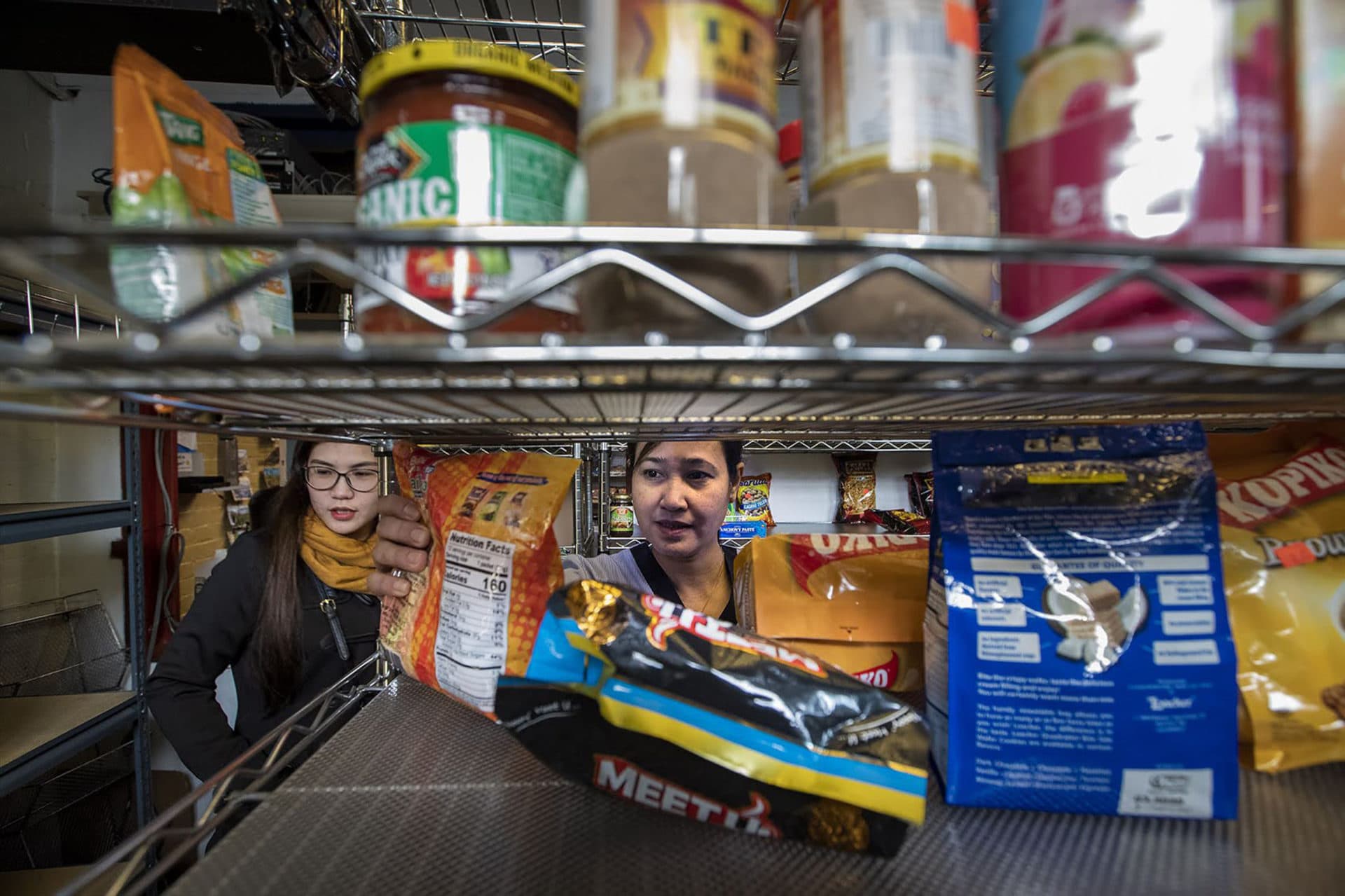
Cushing calls cruise ships "floating cities" because they need hundreds of workers to cook, clean and otherwise maintain the ships and please their passengers.
Few Americans work these jobs. Most of the seafarers come from China, the Philippines, Indonesia, Russia and Ukraine.
So pieces of home on a foreign shore can mean a lot.
Near the back of the store, a worker named Daren picks up a few cans of Ligo brand sardines, a favorite snack back home in the Philippines.
He says the mission supplies things he can’t get on board.
"Especially medications, local food back home," he explains. "It’s very helpful because we don’t have longer to go far from the terminal."
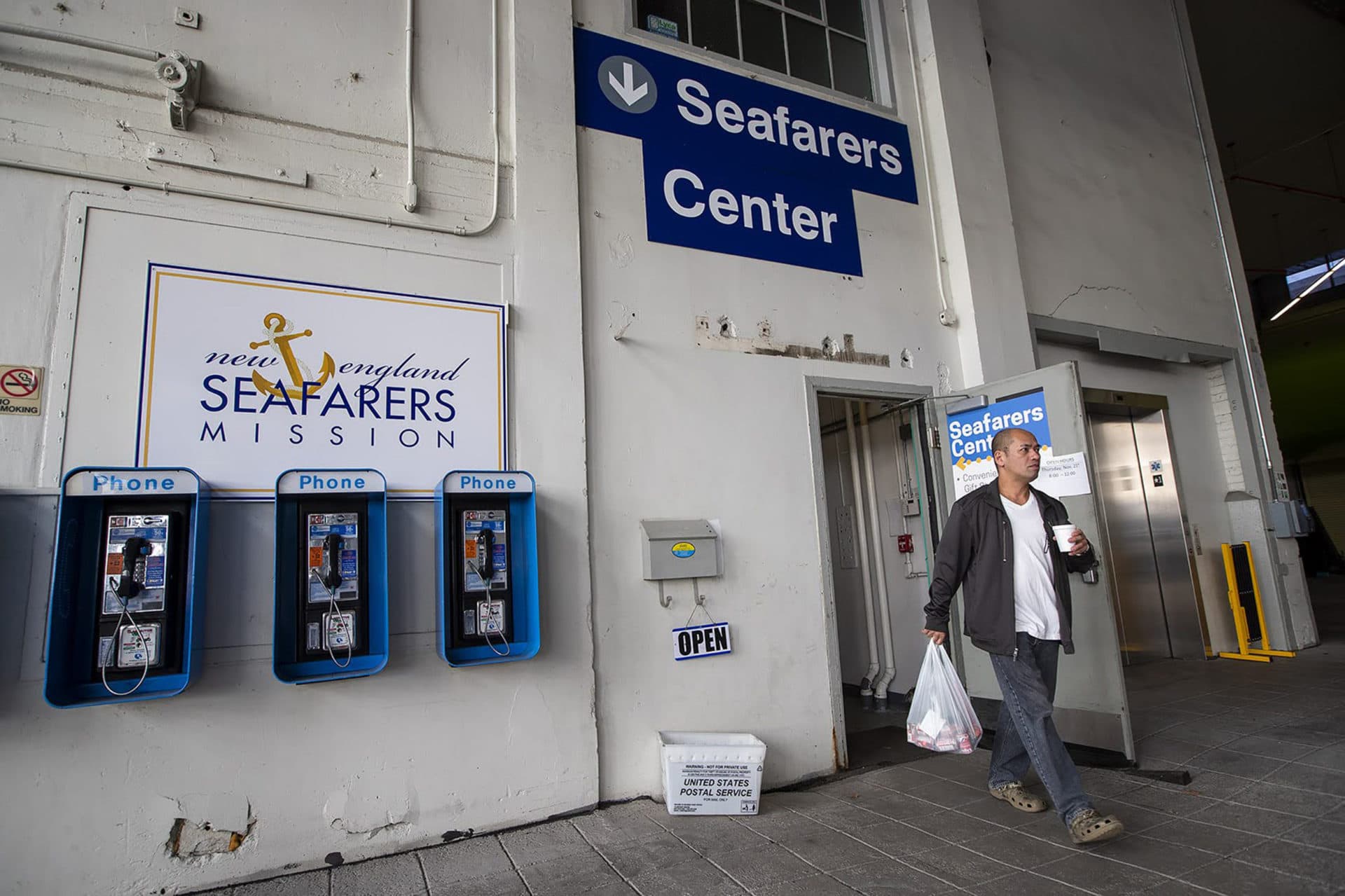
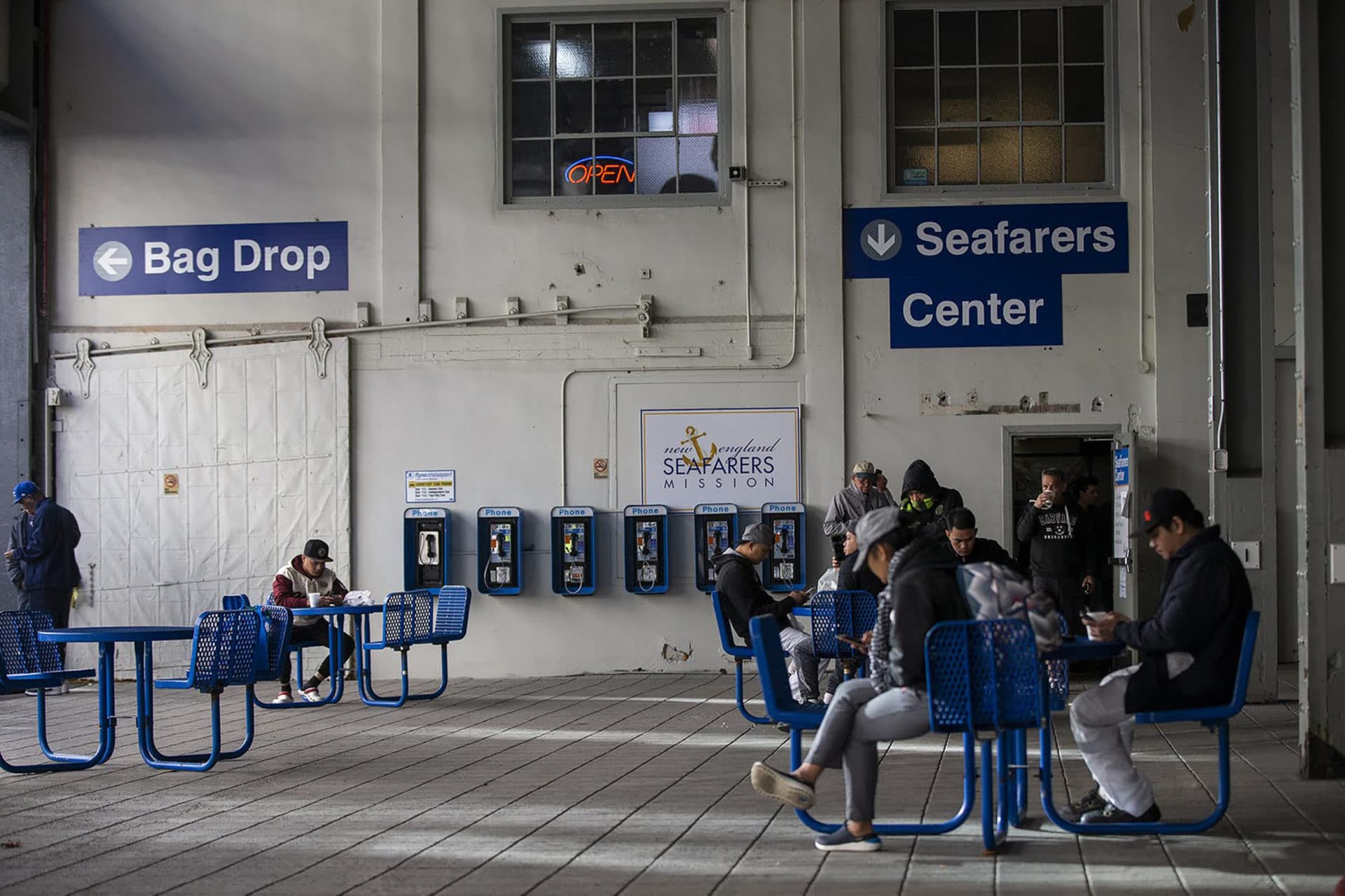
A Century-Old Mission In The Harbor
The New England Seafarers Mission didn’t start out as a convenience store.
It was founded in 1881 as the Scandinavian Seamen’s Mission by a Swedish immigrant and ex-sailor named Olaus Olsson.
Olsson would row into Boston Harbor and preach to seamen on their ships.
Today, the mission is nearly devoid of religious symbols or obvious spiritual practice. The store is on the first floor; a post office on the second.
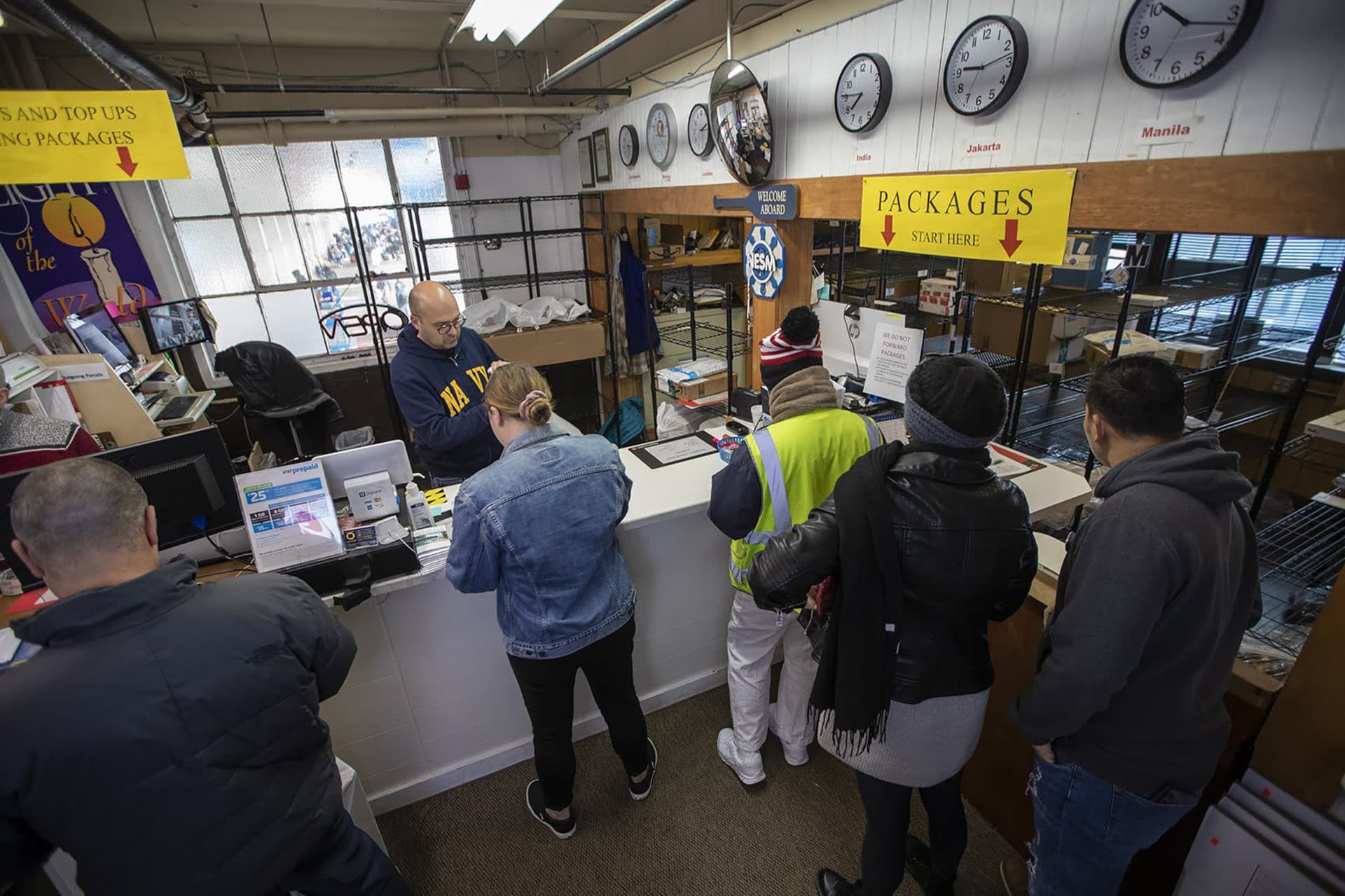
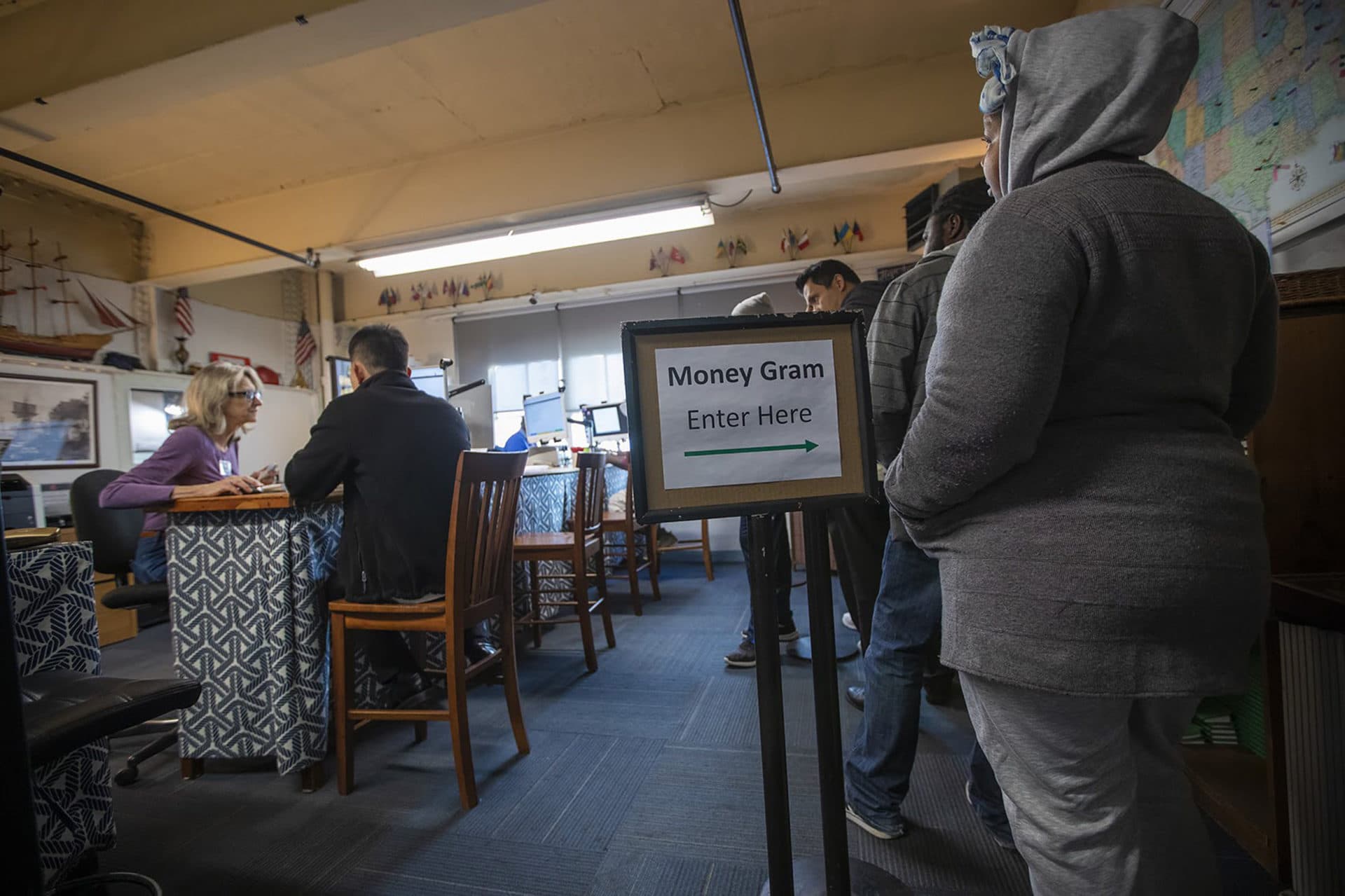
There used to be a chapel on the third floor, but Cushing filled it with MoneyGram terminals so workers could send their pay back home.
The last hold-out of religious space is a tiny prayer corner, protected by a wooden screen. But volunteer Ken Hamel says it’s rarely used.
"It’s almost invisible, when you come in you don’t really see it as a chapel," he says, standing next to the money transfer terminals. "More of the chapel-type things occur in the hallways. Overall, the chaplaincy is a roving chapel, if you will."
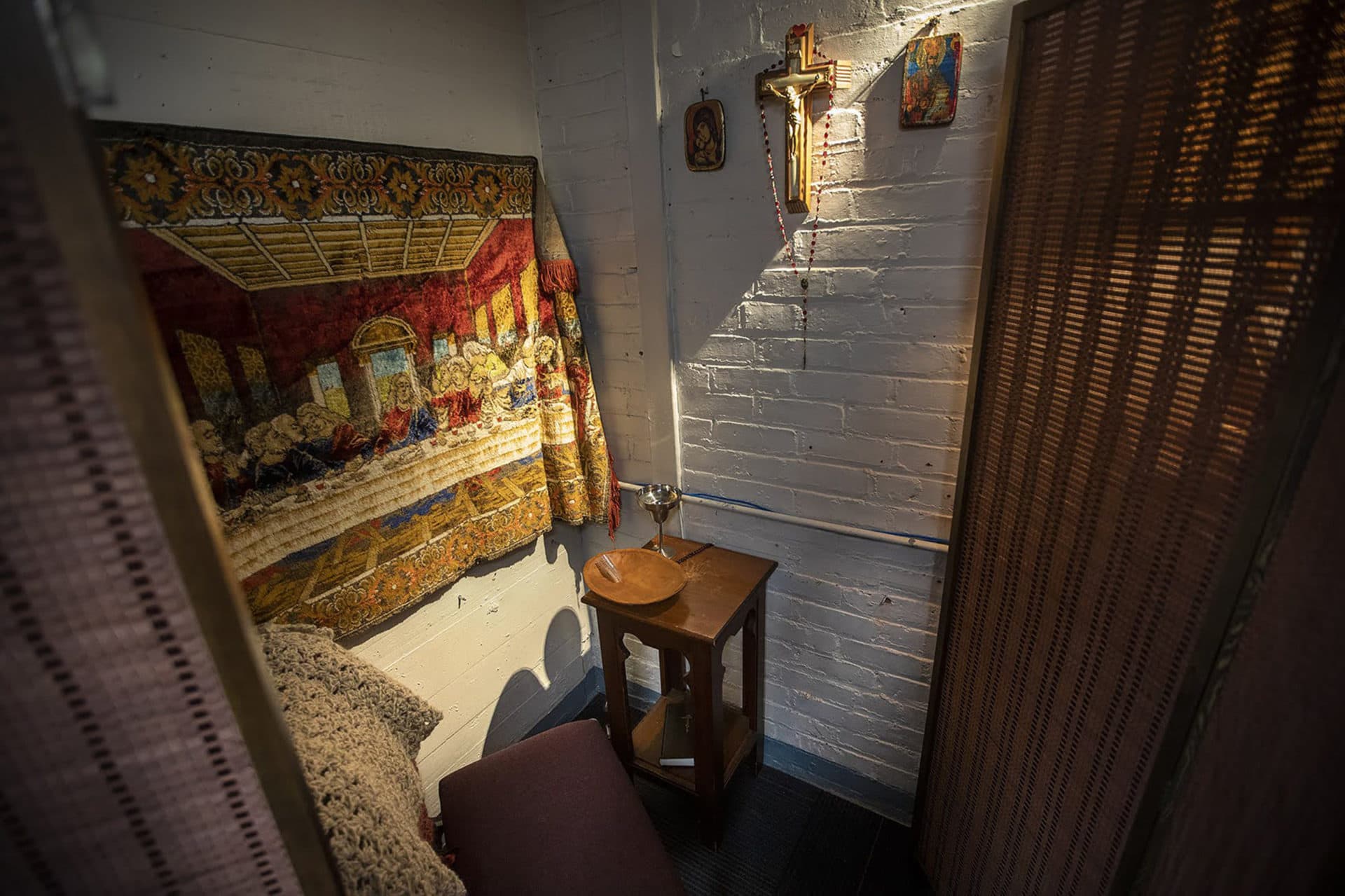
Cushing agrees. He says workers often approach him about problems on their ships. They tell him their wages are sometimes withheld, or about medical bills that will go unpaid if they get hurt on the job. While aboard the ship, sometimes they can't get immediate medical attention. Cushing explains that he's stepped in to stop a ship from leaving so someone can get help first.
"We were able to intervene ... to kind of hold that ship off until that crew member got that medical attention they needed," he says.
The industry group, Cruise Lines International Association, tells WBUR it cannot comment on any individual complaint. It did say, in a written statement, that it fully supports and complies with the “Seafarers’ Bill of Rights” — a document that sets standards on wages and working conditions.
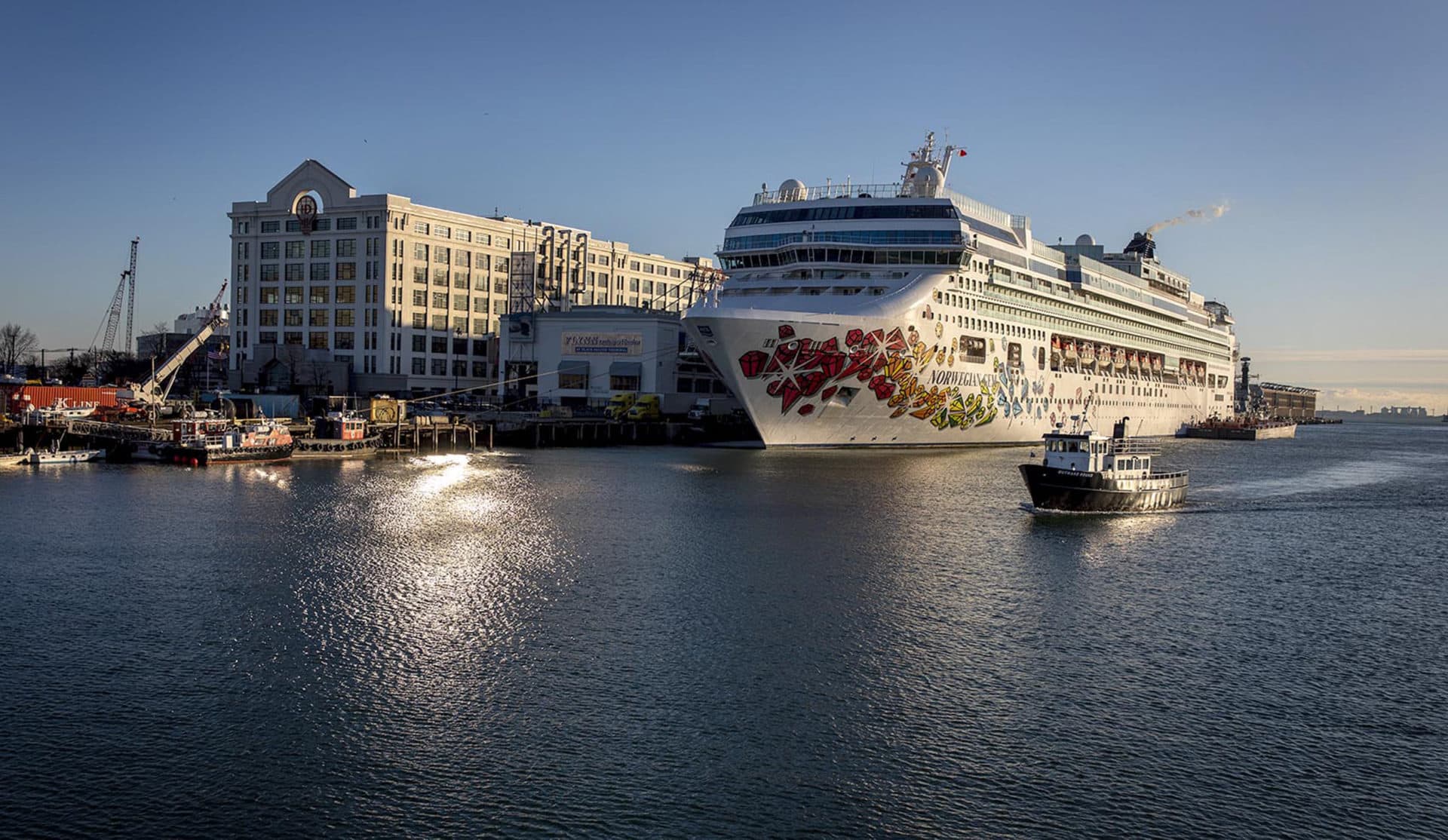
Most of workers' complaints, though, are about the basic discomfort of life on board. Seafarers say they spend hours on their feet interacting with guests, sometimes with no days off. At night, they sleep in tiny rooms, on bunkbeds cramped with up to three others.
Molly, a cruise ship worker from Belize, explains that worker accommodations on board are uncomfortable.
"Guests complain about their cabins," she says. "So imagine guests complaining? It’s smaller than a guest cabin."
WBUR has agreed to only identify the cruise ship workers in this story by their first names, because they fear retaliation for speaking about their employment.
Molly says that, after a while, life on board can get stressful.
"If you don’t have a strong mindset it’s very hard. Even with a strong mindset, it’s hard," she says. "But if you have a goal, you’ll make sure you’ll accomplish that goal. That’s all you have to have in mind."
Advertisement
It’s these issues — isolation, homesickness, boredom — that Rev. Cushing says he’s trying to combat at his mission.
"What they believe is not primary to me. ... I want them to know that they’re not going to be forgotten."
Rev. Steve Cushing
Cushing says he may never talk about God or pray with seafarers, but his time spent with them is spiritual work.
"For me and for the way that I’m living out my faith and how I feel my calling, it falls under the umbrella of, I’m a pastor to seafarers. I want to make sure that they get all the help that they need," he explains. "What they believe is not primary to me. ... I want them to know that they’re not going to be forgotten."
Scholars who study trends in modern religion say chaplains like Cushing are evolving to meet the changing times.
"This is not the sort of ritualistic support that chaplains did in years past," says Wendy Cadge, a sociologist at Brandeis University.
"We’re in a different place in the contemporary landscape," Cadge adds, "where more and more people don’t belong to congregations, don’t have local clergy that they rely on, yet still have the same kinds of existential troubles we as humans have long had."
As fewer people seek out traditional churches for spiritual fulfillment, the faithful are going out into the world to try to fulfill what they see as God’s will.
"At least in the United States, when a vessel comes into port, customs and the Coast Guard care for the vessel itself and for the cargo, but nobody does any outreach at all to the people on board unless chaplains are there," Cadge says.
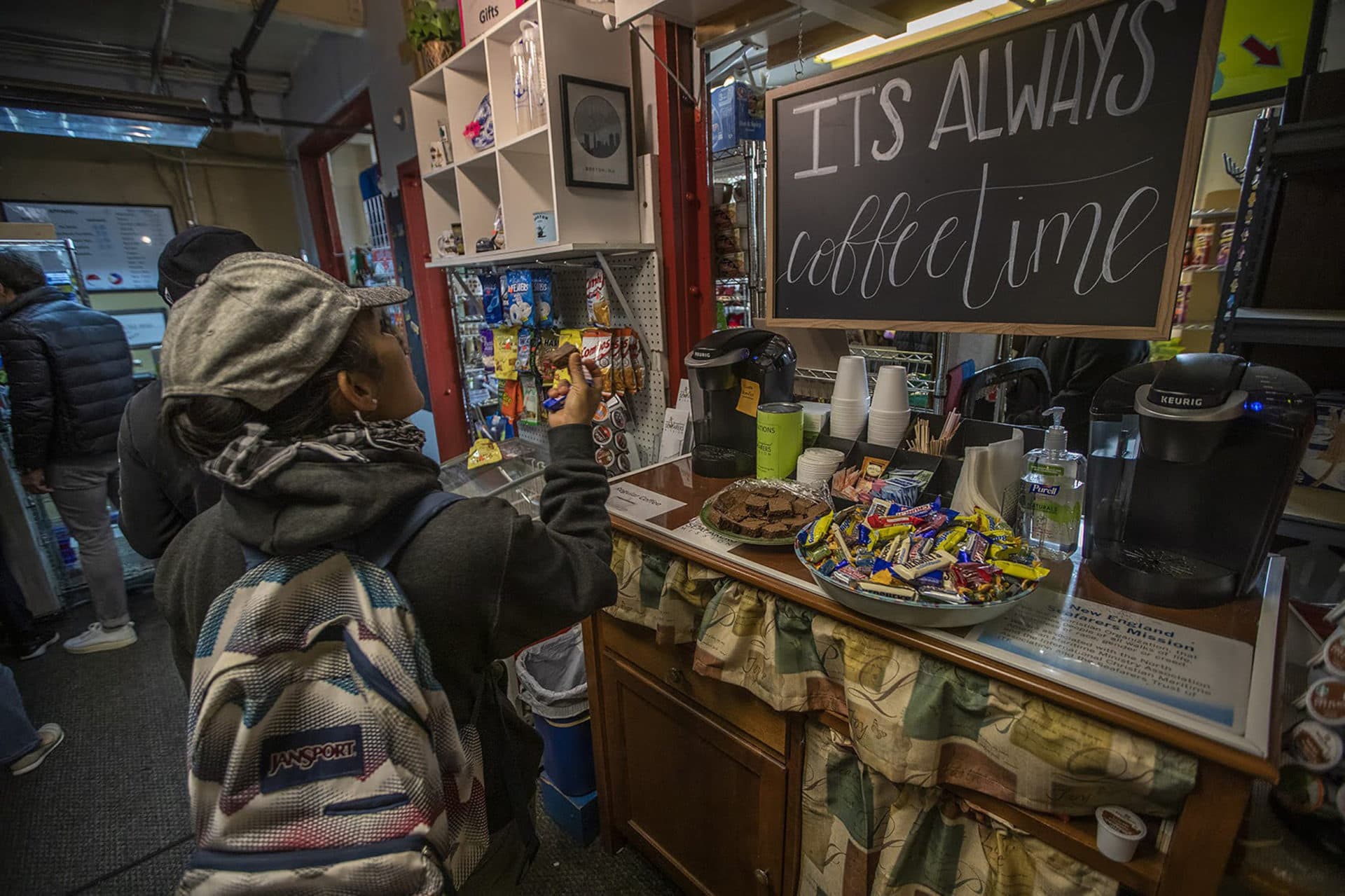
Back at the mission, cruise ship workers crowd the hallways to make last-minute purchases and pick up packages.
A worker named Joaquin grabs a couple cans of Spam off a shelf in the mission's store. He says he’s grateful for the convenience.
"What I love is that if I want to buy something that I cannot go out to buy ... they have it," he says. "I love it."
"... when you look at how Christ lived, this is how he lived. He would be here, running the convenience store for the seafarers. That’s where he would be."
Cheri Sperr, a mission cashier
As shoppers leave, Cushing and his volunteers clean up, re-stock shelves, and close the metal door to the mission.
Cashier Cheri Sperr says she’ll be back. Because to her, this seaport mission is church.
"We think that we’re doing church-y stuff when we’re like, singing songs at church. And I’m not saying that’s not important," she says. "I’m just saying, when you look at how Christ lived, this is how he lived. He would be here, running the convenience store for the seafarers. That’s where he would be."
This segment aired on September 3, 2020.
